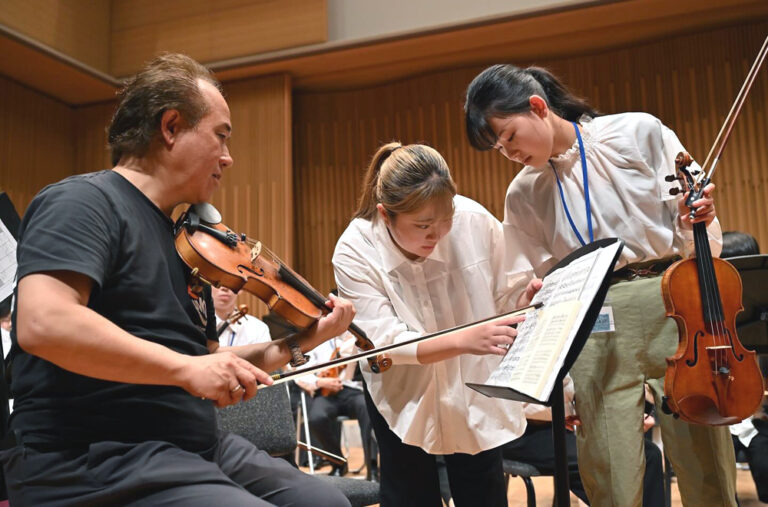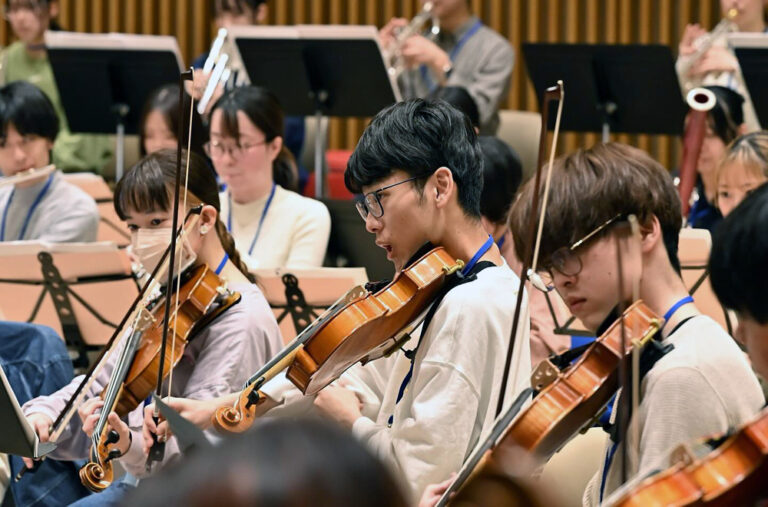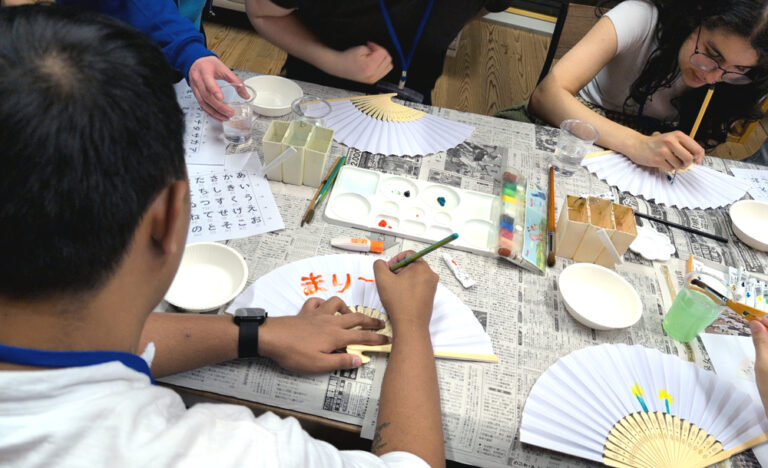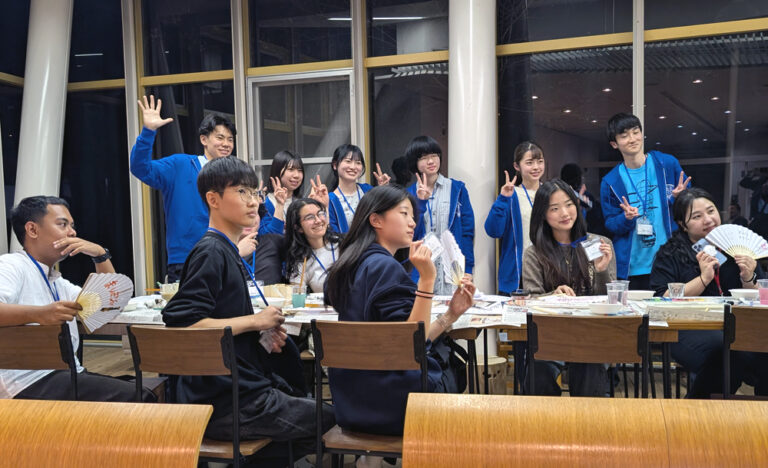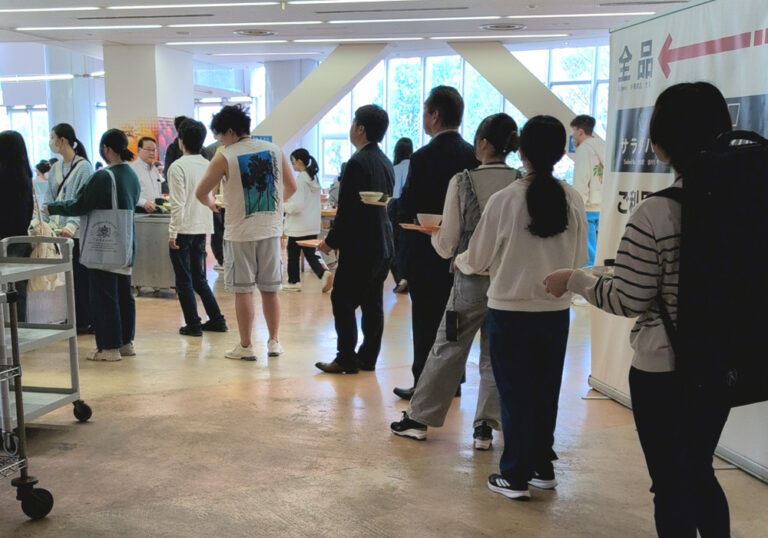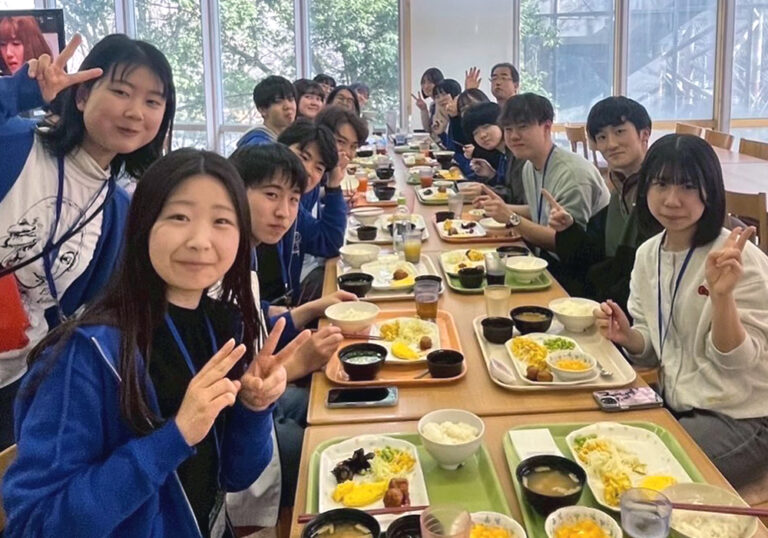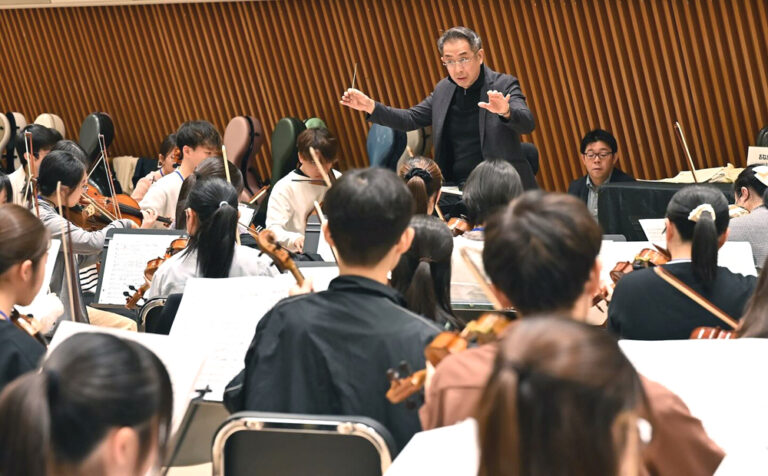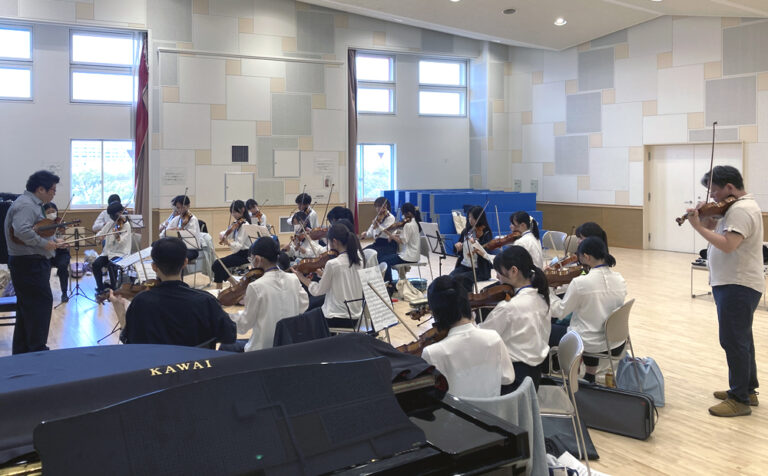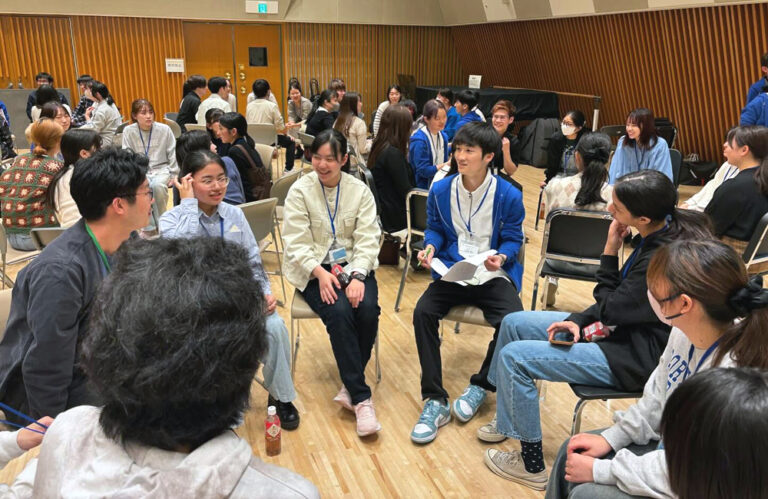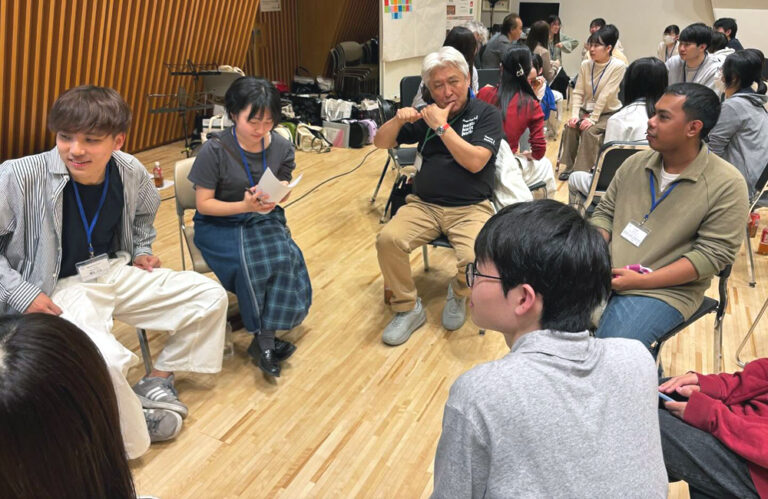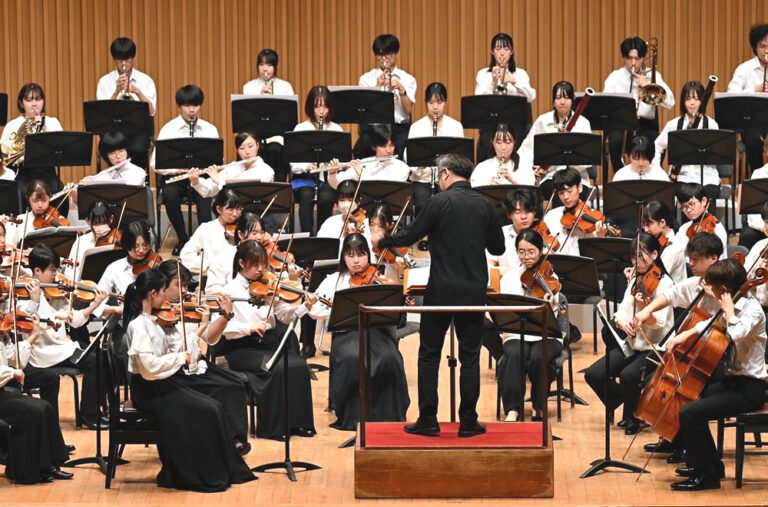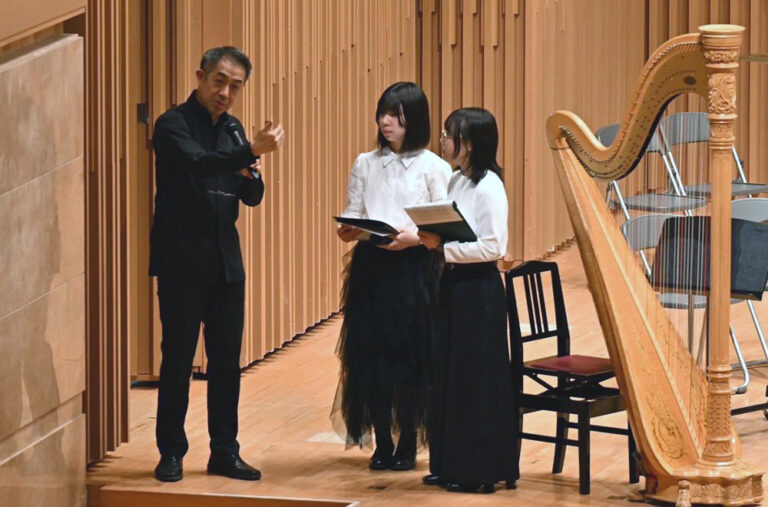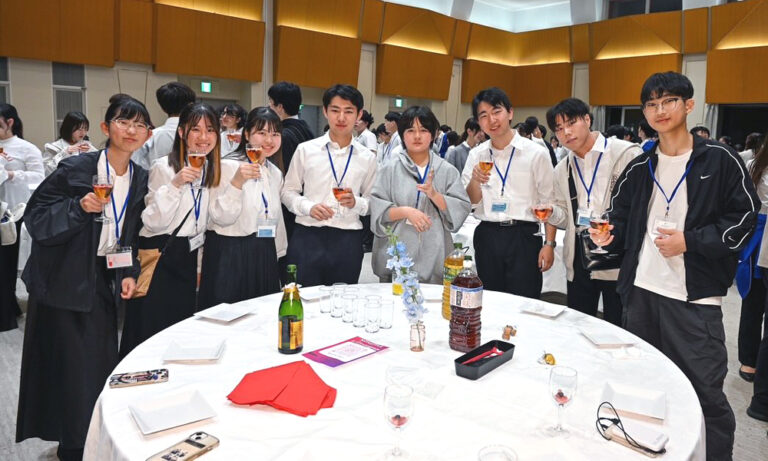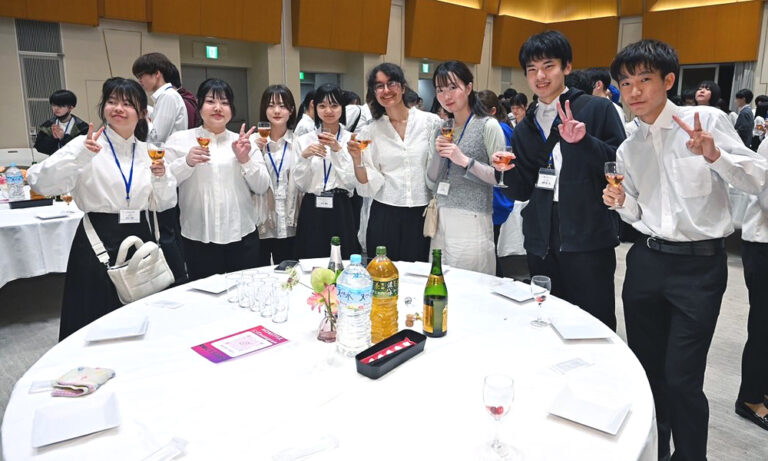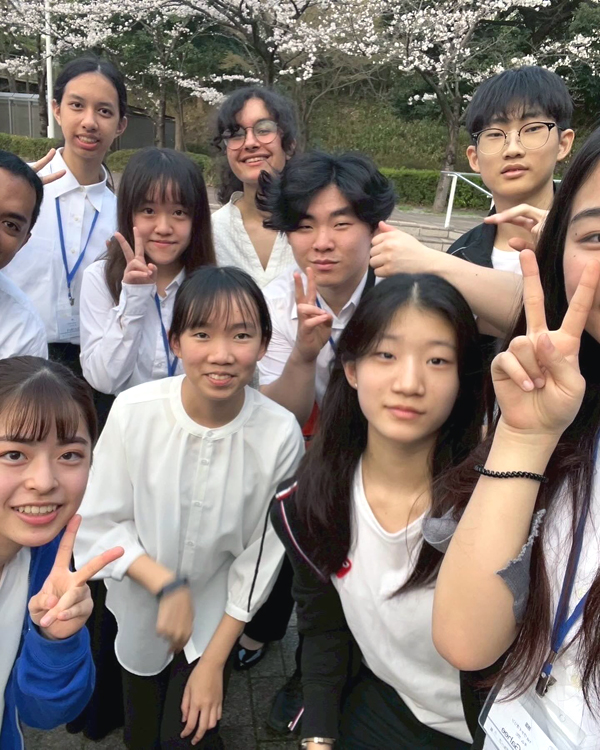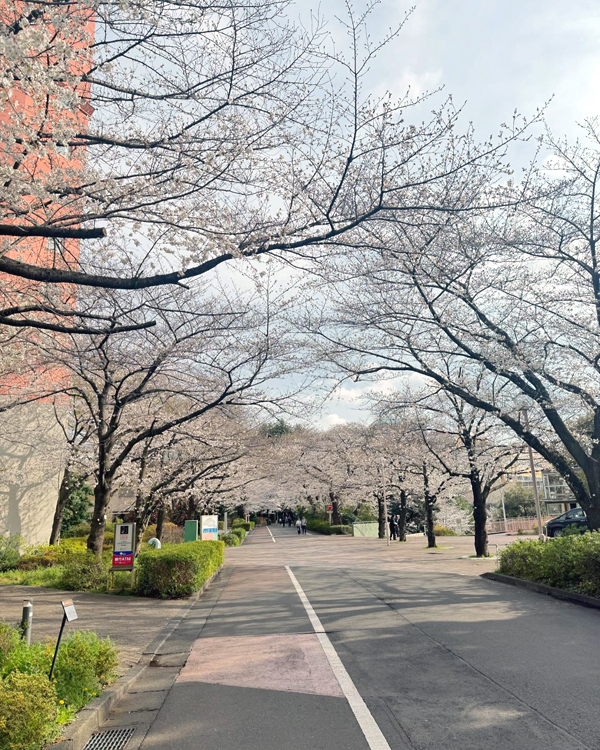Report on “The 41st Toyota Youth Orchestra Camp (TYOC)” hosted by JAO
March 26 (Wednesday) - March 29 (Saturday), 2025
National Olympics Memorial Youth Center, Tokyo, Japan
Conductor:
Kimbo Ishii, 2019-2022 General Music Director of the Landestheater Schleswig-Holstein in Germany
Training program:
Richard Strauss: Don Juan
Rachmaninoff: Rhapsody on a Theme of Paganini
Brahms: Symphony No.2
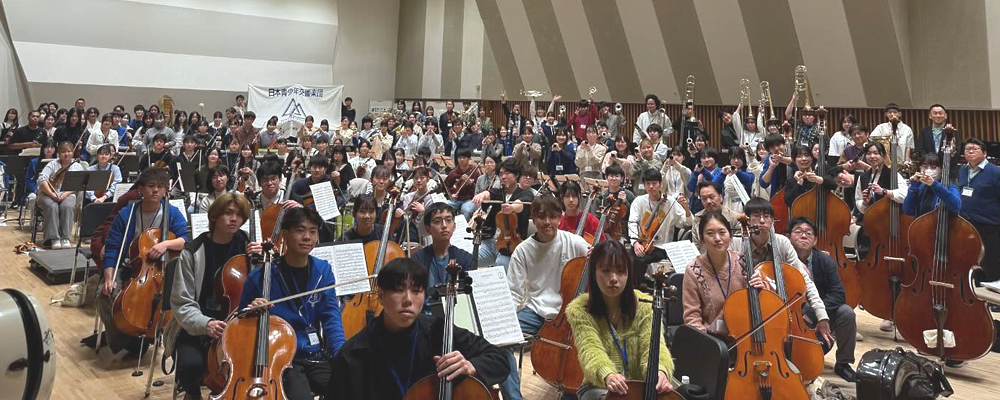
Following the milestone celebration of its 40th anniversary last year, the Toyota Youth Orchestra Camp (TYOC) opened a new chapter—this time in the heart of Tokyo. Held from March 26 to 29, 2025, at the National Olympics Memorial Youth Center, the camp greeted participants with cherry trees in gentle mid-bloom, their delicate petals symbolizing the emerging brilliance of young musical talent.
This year’s international delegation included nine young musicians: three each from Korea and Taiwan, one from the Philippines, and two from Norway. They were accompanied by one instructor each from Korea, Taiwan, and the Philippines, bringing both musical skill and cultural diversity to the experience.
TYOC stands out for two defining qualities. One is the presence of top-tier professional musicians from Japan, who serve as section coaches and provide meticulous, high-level instruction. The other is its student-led model: an executive committee selected from within the participants is entrusted with planning and running the program. This latter aspect, in particular, is regarded internationally as an exceptional and forward-thinking approach to youth music education.
On March 25, the day before the camp officially began, the executive committee organized a welcome event and reception for the international participants. As part of the program, guests took part in a cultural activity where they painted traditional Japanese folding fans, a refined and thoughtful gesture that offered a firsthand experience of Japanese craftsmanship. This experience allowed participants to connect not just through music, but through culture, dissolving any distance between them with quiet ease.
Throughout the camp, the executive committee continued to play a central role in its operation—a structure that, for first-time participants, became one of the most inspiring and impactful aspects of the entire experience.
One notable difference from previous camps was the nature of this year’s venue. As a large and multifunctional facility, it was not reserved exclusively for TYOC and was shared with many other groups. In the mornings, more than 500 young people from various organizations gathered in the dining hall for breakfast. A long line stretched from the entrance, yet moved forward with quiet order—like a single, living organism. Each person collected their food in turn, flowing smoothly through the space. One wonders how such a scene appeared in the eyes of the international participants, witnessing this subtle harmony in motion.
The first day of the camp began with an opening ceremony at 1:30 p.m., followed by a full-orchestra rehearsal featuring 130 young musicians.
The repertoire was ambitious: Brahms’ Symphony No. 2, Richard Strauss’ Don Juan, and Rachmaninoff’s Rhapsody on a Theme of Paganini—a series of technically and musically demanding works. Yet under the expert baton of Maestro Kimbo Ishii, the ensemble was skillfully shaped into cohesion. The young musicians threw themselves into the challenge with fierce determination, and the instructors offered precise, insightful support. With each passing moment, the music began to take clearer shape—what was once a collection of notes gradually became a living, breathing soundscape.
In the evening, the participants broke into sectional rehearsals, focusing first on fundamental techniques specific to each instrument. The instructors demonstrated key passages from the repertoire, guiding students with clarity and care. The sessions were not only technically rich but also deeply inspiring—the instructors’ expertise was evident, but even more striking was their genuine passion for nurturing the next generation of musicians. From that evening onward, and through to the final day of the camp, rehearsals alternated between full ensemble and sectional work, creating a rhythm of growth and deepening musical expression.
The lunchtime recreation program on the second day was filled with warmth and laughter. International participants joined their Japanese peers and instructors, enjoying the relaxed activities together and forming friendships beyond borders.
On the third day, a special pre-concert was held at 4:00 p.m.
The program began with a moving performance by the Tokyo Children’s Ensemble—an inclusive choir that brings together children with and without disabilities. Their pure, resonant voices filled the hall with quiet beauty. Following this, TYOC participants took the stage to perform “Finlandia” by Sibelius, along with selected pieces from their main repertoire. Despite having only two days of rehearsal, the ensemble delivered a performance of remarkable unity and musicality, earning thunderous applause from the audience. Naturally, the post-concert gathering that followed was lively and filled with joyful exchange.
Another remarkable aspect of this year’s camp was the return of TYOC alumni—not as participants, but as mentors and leaders. Ms. Soyeon, who now serves as the leader of a delegation from Korea, is herself a TYOC graduate, having taken part in the program 13 years ago. This time, she returned in a new role, guiding the next generation of participants. Also joining as an instructor for the first time was Mr. Hiroki Shinno, who served as the oboe coach. He, too, is a former TYOC participant. In total, six alumni took part in this year’s camp as instructors, delegation leaders, or staff members—a testament to how deeply the TYOC spirit has taken root and continues to flourish.
On the final day, the orchestra came together once more to rehearse the pieces that had not been performed during the pre-concert.
The sense of unity displayed by the young musicians was truly striking—it was as though they had already become a fully realized orchestra.
This year’s theme, “Kizuna – Connecting Sounds, Uniting People,” was not just a concept, but something deeply embodied by everyone involved—the participants, the conductor, and the instructors alike.
Then came the closing ceremony. With the camp drawing to a close, the participants exchanged farewells, carrying with them hopes of reuniting next year. They returned to their hometowns and countries, gently accompanied by cherry blossoms in full bloom—as if the trees themselves were offering a silent, heartfelt send-off.




